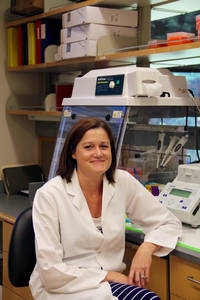Author Interviews, Fertility, OBGYNE / 15.03.2022
Reproductive Endocrinologist Discusses the Promises and Challenges of Freezing Eggs for Delayed Conception
MedicalResearch.com Interview with:
Dr. Lora Shahine MD FACOG
Host of the fertility podcast Baby or Bust
https://www.lorashahine.com/
Dr. Shahine is double board-certified in reproductive endocrinology and infertility as well as obstetrics and gynecology
Clinical assistant professor at the University of Washington
Pacific NorthWest Fertility
MedicalResearch.com: How did you become interested in reproductive medicine?
Response: I love the combination of technology, women’s health, and helping people during a vulnerable time with all the emotions that come with it. I knew becoming a reproductive endocrinologist would mean a career of learning and helping people build families.
MedicalResearch.com: When should women consider freezing their eggs?
Response: There is no one perfect age.
The younger someone freezes eggs (in their 20s), the higher quality the eggs will be and the higher success in the future but the more likely someone may not need the. The older someone freezes eggs (in their late 30s and 40s), the lower quality and the lower chance of success over time. For many people and in general - the research supports its most cost effect to freeze eggs in your mid 30s.
(more…)















